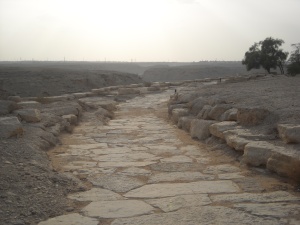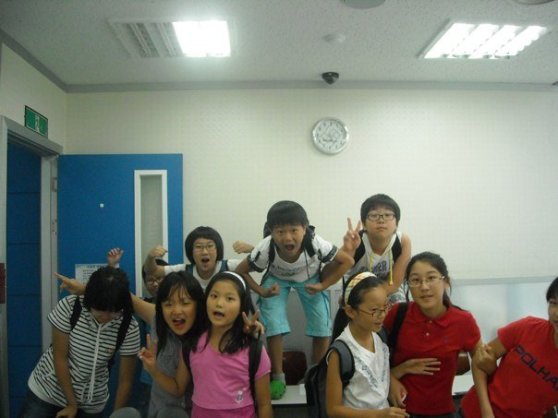
“I ran my first overseas marathon!” is item #4 on my Saudi to-do list, that I drafted exactly a year ago from today.
Preparation
Before becoming a runner, I threw around my plans of doing a marathon, as if it was picking out what’s for dinner. Little do some know that cutting a few practice runs short, skipping a few routine stretches, and eating at the wrong time; could not only effect the “big day’s” run, but can leave you handicapped post-race. Preparation means everything to a marathoner. Those 5 months are spent researching Barnes and Nobles, seizing every issue of Runner’s World, contacting strangers for marathon tidbits of success, and staying enthusiastic about this craziness even when you have 16 miles to put in before sun-up. You now obsess over every new gadget, cream, and shoe that could get you across that finish line.
Saudi is a marathon. It wasn’t a quick decision for me to come here. It took the inability to survive off of 3 part-time jobs, declined credit cards, and the approaching end of school loan forbearances, for me to settle on this location. I picked up every Saudi-related book that I could find, from genres of culture, to novels, to Sharia law. I joined every FaceBook group that contained variations of the word “Saudi”, “Expat”, and “ESL”. I made a lot of my friends before even stepping onto a plane. I stashed extra peanut butter crackers; which came in handy when provided with a faulty stove, a lukewarm fridge, a kind loan of 50 SAR ($15ish) from the cleaner, and a 2-day weekend of no direction. I was determined to not let anything throw me off. The lack of preparation is obvious in many of my co-workers, who quit in their 1st month or complain about the things that they could’ve simply found in a book. This was not going to be me!
Mile 1 to Mile 13.1 / Months 1 to Month 3 of Saudi

The race begins! 13.1 miles has been touted as the happy medium for many long-distance runners. The band and cheerleaders send us off in high spirits. For the first 3 miles you’re hyped up with a nervous jitter. Yet, you feel pretty confident in your consistent preparation over the past 5 months. Random spectators give you personalized shout-outs thanks to the last-minute decision to masking tape your name on your shirt. Tranquil coffee drinkers look on from the Starbuck’s patio, as runners pass by in decaffeinated insanity. Fellow runners are smiling. Some are in crazy costumes. Some are exerting extra energy by creatively ducking through and around slower clusters. After the 1st three miles of excitement of passing herds, your breathing has come to a comfortable rhythm. You check your watch to see that you’re still on pace. And once you find a calm runner that matches your speed, anxiety lessens. “Just stay with him and I’ll make it!” The scenery is always great the first 13 miles. You get front row seats in people-watching. Traffic is halted at every intersection, making you the star of the hour. Mile 13 is just around the bend and you know that you’ll get a nice treat at the mid-point water station. You got this!!
The first three months in Saudi are filled with stories of shopping in gold souks, searching for frankincense and myrrh, and hiking Arabian deserts. Your friends and family excitingly wait for your updates, and then passes it to anyone willing to listen. “Yes, my granddaughter’s over there wearing abayas and she has to sit in womens only sections!!”. “Oh wow, really??!” You feel unique. Every new country presents a bit of anxiety, as I look like a confused foreigner not knowing my way home. With practice, I soon have control over my personal drivers and surroundings with yesar (left), yameen (right), and sida (straight). I find amazement in the stark contrasts of climate. Aerial views show seas hitting deserts, and a clump of trees lost in the center of endless sand. A sandstorm that turns a clear day, bright orange, and then pitch black, welcomes me on my second day. The first rain of the season immediately follows minutes after, that brings out old men smiling like children. Soaking up all the cultural and religious views of those around me, has become a joy to write about. I settle into a job with half the hours and double the pay of Stateside teaching. I hold tight to friends who are on the same pace and mindset as myself. This is the honeymoon phase.
Miles 13.1 to Mile 20 / Month 3 to Month 8 of Saudi

The crowds are starting to thin out. The skinny dude in the skimpy runner shorts hasn’t been seen in the past hour, as you start to wonder where you place in the pack. You lose track of your running partner due to shoe-lacing and a porta potty break. You are now entering the desolate backroads and well-manicured residential areas. The race planners must have forgotten about this stretch of the course, as the only entertainment is a juggler and a clown. I hate clowns. By mile 18, smiles start to lessen, everything is starting to ache, and you try not to let the boredom and loneliness get to you. The banana man costume that was a cool idea on Mile 3, now lays on the side of the road at the Mile 20 marker. The countdown begins.
The honeymoon phase of Saudi is over. Some of the friends I entered Saudi with, have called it quits. The exotic souqs are now seen as the American equivalent of a flea market. You are now, “Ashley, you know …______’s daughter… She’s somewhere, I think Iraq? Iran?” The summer months bring along 115 degree, asphyxiating heat that literally scorches your eyes. To avoid the discomfort, I settle for indoor activities, like walking around the countless malls in one square block, that all hold the same thing. Random breezes result in a faulty internet connection, and I lose touch with family for a few days. Due to America’s negative news broadcasts, I hear their worry and frustration on the other end of Skype calls. You are suddenly homesick.
Mile 20 – 25 / Month 8 – Month 11 and 3wks of Saudi

After the 19th mile, your mind is on each painful step. Even worse is the mental exhaustion. You’ve depleted most of your interesting thoughts. It slowly tugs at your confidence, making you think back on whether you’ve trained to the best of your ability. Somewhere in between the 20th and 22nd mile, runners pass through a prop of a broken wall. If you’re lucky, you will not hit the utterly exhausting, zombie-like mental state that makes even walking to the finish line an unbearable notion. At this point, you may randomly start crying. Or you may just stand there, shaking your head, as if this would summon your short-circuited brain to send the message, “Pick up your right foot. Good, now your left.” This is called “Hitting the Wall”.
The last three months in Saudi are simply tiresome. I feel like no one officially completed their contract during my earlier months. And now suddenly, everyone’s leaving me behind.. mapping out their upcoming travels, first meal and alcoholic beverage. This starts the desperate yearning phase, when you begin putting yourself in their shoes. I spent my Thanksgiving, Christmas, and New Years, in the classroom, as Saudi doesn’t celebrate these holidays. Listening to “Baby its Cold Outside” on a warm Arabian night, while my small potted plant twinkled with smuggled Christmas lights, was the highlight of my winter holiday. So, January 1st, the countdown calendars start to go up. To keep from standing soullessly in front of the classroom, a few mental health days are in order. You will know when this day comes, as you will have to physically pick up your legs out of the bed. If you sit on the edge longer than 10 minutes, you’ve “hit the wall”.
The last 1.2 miles / The last week in Saudi

You can’t call the move your making even a proper shuffle. You would make a perfect extra on “The Walking Dead”. You are drenched in sweat, with chapped lips, sunburned, and chafing in areas that you didn’t know chafed. Suddenly, the crowds that were absent half of the race, are standing on the sides cheering you on and strangely your mental fog clears. They are smiling so much, that you assume that you actually won’t look half bad in your finishing-line photo. This thinking is completely wrong. You look like hell… But, you switch thoughts to all of the months of training, the sacrifices put in, and all of the miles covered. You have made it through! Crossing the finish line was an accomplishment in itself, no matter the timing. Congratulations! For the rest of your life, you hold the title of “marathoner”, even if it’s your last!
The last week in Saudi actually turns out bittersweet. I’ve realize that I’m a much more productive person than before. Those months of boredom, has led me to find a new talent in blogging. It has allowed me to sit and read books that I’ve never had time for. Time and diligence has allowed me to save enough money to return home with zero credit-card debt and start on student loan payments. The homesickness has not only reminded me how much I love my family and friends, but shows how I’ll miss the friends I’ve made in here. My students have given me enough material to keep me laughing for decades. I am thankful to not just know about Saudi’s culture and religion, but also have some understanding behind their practices. This year has taught me how much I do need others, and has brought out some untimely extremes of emotion that I never knew existed. I have officially made it through the year!! Through all of the ups and downs, I will say that it was all worth it. I deserve a freakin’ medal!
















